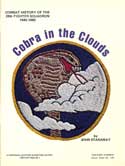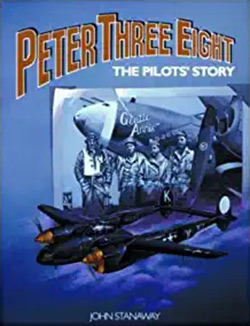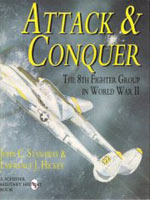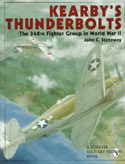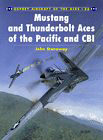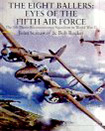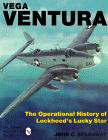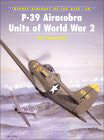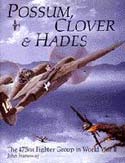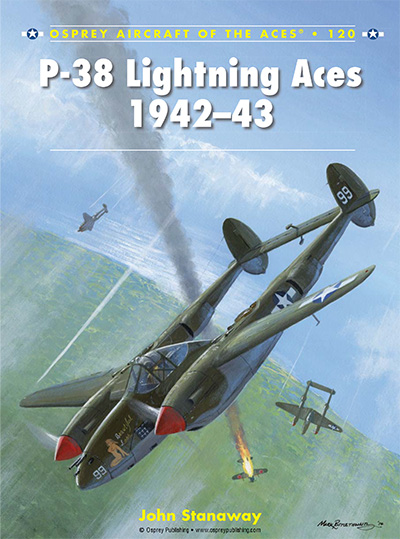In memory: John Stanaway passed away December 18, 2019.
 John Stanaway was the author of many books about World War II squadrons and pilots of the 5th Air Force (5th AF) in the South West Pacific Area (SWPA) during World War II. Also, books about specific types of aircraft and aces.
John Stanaway was the author of many books about World War II squadrons and pilots of the 5th Air Force (5th AF) in the South West Pacific Area (SWPA) during World War II. Also, books about specific types of aircraft and aces.
Tell a little about yourself and your background
I was born in Minneapolis, Minnesota at almost the
exact midpoint of WWII, so my interest comes from just about the safest
place and time in that somber period. My dad was one of those folks
who had to get into the action, so he volunteered for a stint in the
Aleutians on airfield construction in 1944-45. I guess my interest in
WWII aviation begins with that and with the stories my other relatives
brought back from their wartime service. They all had stories about
the P-38, and my dad actually brought back pieces of aluminum from a
P-38 as well as a crashed Achi "Jake" floatplane.
What got you interested in WWII history?
Most of my intellectual growth stems from World War II (history, geography,
philosophy, literature, politics, etc.). I remember with a grimace those
days as an undergraduate at the University of Minnesota when I spent
valuable study time in Walter Library going through the histories of
the RAF or USAAF rather than my course work. No matter; I got the bug
in a bad way until I spent a hitch in the USAF and was discouraged by
all the apathy about aviation in that outfit.
Did veteran relatives play a part in your interest?
Some of my first memories revolve around the return
of my male relatives from overseas. One of my uncles was a U.S. Marine
who saw much service in the Solomons, and brought home a number of souvenirs
which were exciting to a young boy. I learned from him both the intensity
and the horror of the war. He never recovered fully from the grimness
of his experience, and hesitated to talk about the war unless he happened
to be drunk enough to expand on the loss of his friends in the merciless
combat of Guadalcanal. Another uncle was the archetypal Army sergeant
in North Africa. Both of these guys as well as my dad who was in the
Aleutians told me tales of the P-38 and started my awe for the machine.
Speak about your work with veterans
I started to get in touch with veterans at about that
time and began an interest in aces. Through some of the better aviation
periodicals of the time I got in touch with the Air Force Museum, the
National Archives and the Air Force Research Agency at Maxwell AFB.
By the time I published my first work I made some good friends like
Jeff Ethell and Larry Hickey, and they led
to many other good contacts.
I developed a mad affection for anything made by pre-scandal
Lockheed. The WWII types - P-38, Ventura, Hudson and Constellation -
remain my favorite aircraft of all time, and arguments with folks who
denigrated those types led to fanatical research and finally to enough
material for the books that I wrote.
Speak about the research
process behind each book
Basically, my research methods go from general to specific.
I read everything I can get my hands on, then contact government or
manufacturer sources for documents, and then go to historians, veterans
or other interested folks with specific information. My usual research
path is to go to the archives, and perhaps collect microfilm that would
give me a solid factual basis. The veterans groups are invaluable and
much of my deep understanding comes from attending reunions and simply
chatting with the guys. It is surprising how even a mediocre interviewer
like me can get lots of useful information just by talking to the veterans.
There are many foreign sources that will cheerfully help someone like
me. The Imperial War Museum in London, The RAF Museum as well as the
Canadian National Archives and the RAAF Museum were all quite helpful.
I have always had a special fondness for the Lockheed Ventura, and was
pleased to get help from USMC as well as USN veterans through the help
of Leatherneck and Wings of Gold publications.
Let me just mention a few with whom I have worked successfully.
Steve Ferguson is one name that comes easily to mind. We had the terrible
habit of spending lots of time on the phone just exchanging views on
Pacific air war history. Steve is perhaps underrated as a researcher,
but his depth of knowledge is formidable. In the same camp is Bill Hess,
who has written the most trenchant stuff on the Mustang, and especially
the 354th FG. (Steve Blake is doing the history of the 354th, and I
expect a crackerjack work with lots of incidental anecdotes.) Bill is
perhaps the dean of researchers into the history of fighter aces, and
has influenced everybody including Frank Olynyk and me. Of course, my
late pal Jeff Ethell was a class act. We lost a lot of good thinking
in the field of aviation history when he was killed, and I increased
my sour taste for W. Bodie when he said some unkind and unfair things
about his partnership with Jeff. I only met Jay Robbins once when he
and his wife attended a convention that I happened to also attend. He
seemed quite the gentleman, and was the soft-spoken ex fighter pilot
that every account seemed to suggest.
Speak about your work with the P-38 Foundation
Steve Blake actually got me onto the P-38 National Association. I am not a good American who likes to join clubs
or such organizations, but the P-38 Association is such a member friendly
group that I got along well with it. Only the P-51 Association is like
it in encouraging membership.
What are your upcoming projects?
The aviation history business is in the dumps right
now, with little encouragement for folks to do their work. I have a
preliminary manuscript for a history of airline colors, but nobody wants
it. Also, I have a manuscript for a novel about P-38s in New Guinea
that registered some interest for a moment before it fizzled. I am like
Jerry Lewis in that France is more interested in my work than my own
land happens to be. I am currently doing some articles on American aces
for Aero Journal.
Books by John Stanaway
List of books by John Stanaway.

